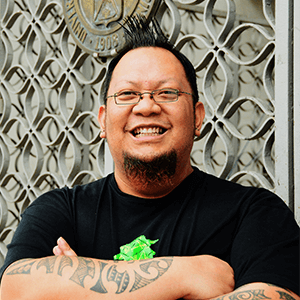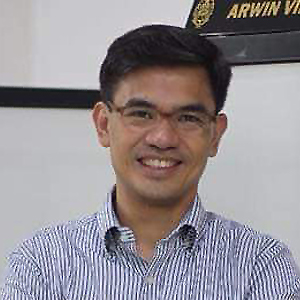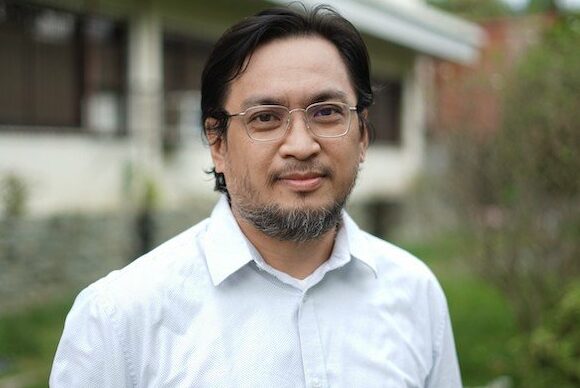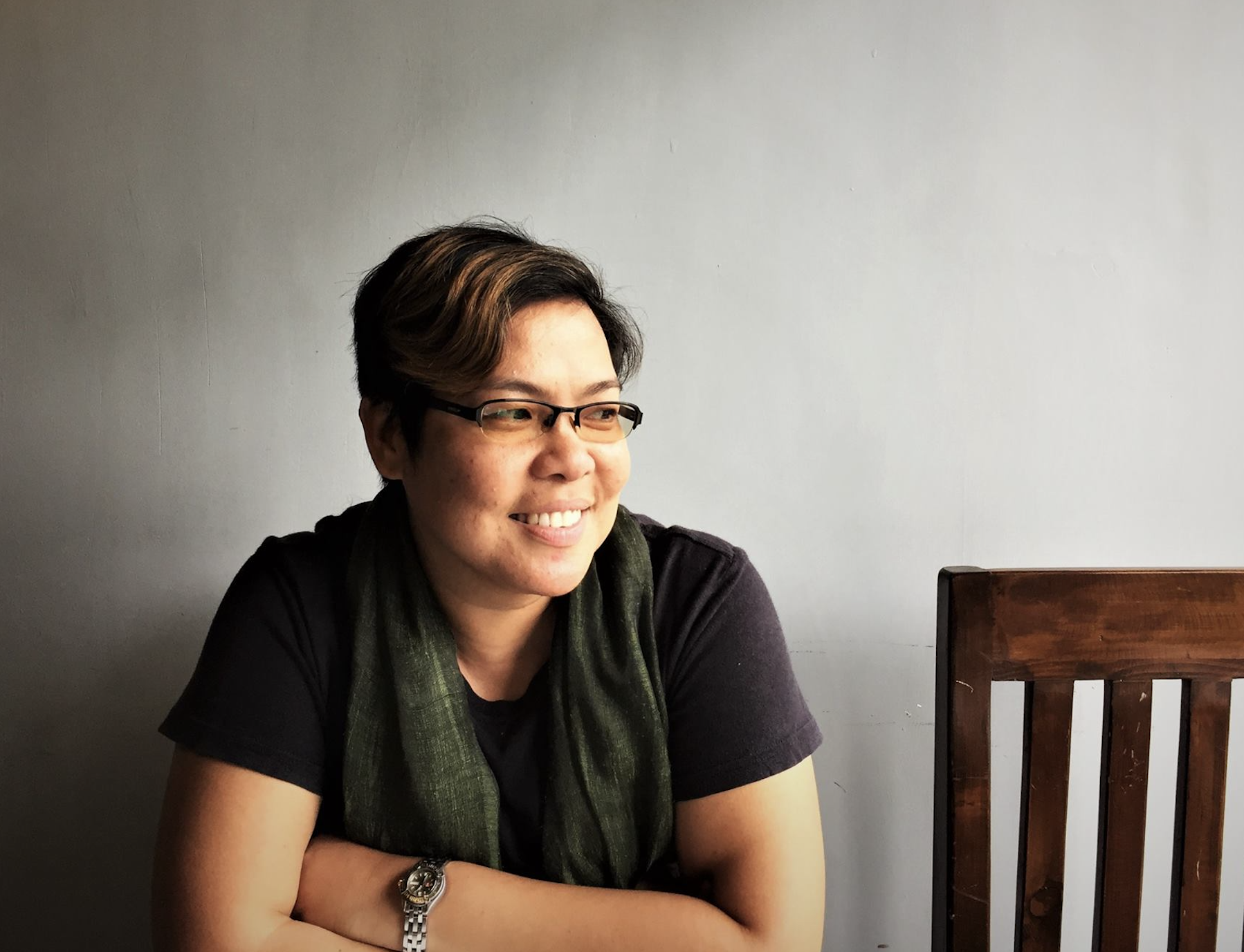Consuelo J. Paz Lectures
To honor Dr. Paz’s unparalleled contributions to Philippine linguistics and culture studies, the UP Department of Linguistics launched the Consuelo J. Paz Lecture in 2019, as a biennial lecture to be given by a distinguished scholar, whose body of work in the field of historical linguistics, sociolinguistics, ethnolinguistics, and cultural studies enriches our knowledge of language & culture and promotes Philippine languages & dialects.
About Dr. Consuelo J. Paz

Dr. Consuelo J. Paz may be considered as the “Grand Dame of Philippine Linguistics”, having published numerous pioneering works on historical & comparative linguistics, sociolinguistics, and ethnolinguistics. She is considered a pillar of modern Philippine linguistics and a force in the establishment & advancement of Filipino as the National Language. Her works continue to be read & cited by linguists, language policy makers, and Austronesianists in the Philippines & abroad.
She was appointed Chair of the Department of Linguistics twice and Dean of the College of Social Sciences and Philosophy (CSSP) from 1992-1998. Dr. Paz was instrumental in strengthening the connection between the scientific study of languages and other disciplines in the social sciences. She also established the Center for International Studies during her term as Dean of CSSP.
Dr. Paz is one of the foremost researchers on Philippine linguistics & cultural studies, having worked in various field sites all over the country for more than 40 years. She promoted fieldwork & participant observation as important ethnographic tools for a holistic understanding of the locality and its culture. Hence, during her term as CSSP Dean, the Inisyatibo sa Pag-aaral ng mga Etnolinggwistikong Grupo (IPEG) was established. Eventually the initiative became a bonafide program, namely, the Programa sa Pag-aaral ng mga Etnolinggwistikong Grupo (PPEG).
Together with Dr. Ernesto Constantino, she is one of the key persons in the formation & development of Filipino as the national language. Her research studies on sociolinguistics have made a major impact in establishing the close relationship of the language spoken by the community and the individual’s identity & sense of belonging.
Previous Paz Lectures
2019 | Jesus Federico C. Hernandez
“Atay, the Heart of the Matter” by Jesus Federico C. Hernandez
Abstract
In a series of essays, Paz (2008) explored the lexico-historical reconstructions of proto-Philippine etyma relating to well-being and anguish—ginhawa, kapalaran, and dalamhati. The meticulous morphological analyses of these three concepts, using the methodology of diachronic linguistics complemented by techniques from ethnolinguistics, resulted in the identification of core concepts for each category: the pneuma or breath for ginhawa, the palm and, by extension, the hand for kapalaran, and the liver for dalamhati. These essays were part of Paz’s efforts to identify pan-Philippine categories that can serve as markers of identity and measures of commonness. The current paper is a sequel to dalamhati and the liver, focusing on provenance, location, and semantic and metaphorical extensions.
About the Speaker
Tuting Hernandez is Associate Professor of Linguistics at the University of the Philippines Diliman. Currently, he is also the coordinator of the Folklore Studies Program of the College of Social Sciences and Philosophy. His research interests include Austronesian historical linguistics, dialectology, ethnolinguistics, folklore, culture history, and language endangerment in the Philippines.
Pangarap niyang lalong maipakilala ang larangan ng linggwistika at ang iba’t ibang sangay nito sa mas nakararami sa pamamagitan ng linggwistikang popular kung saan ginagamit ang mga kaalaman at pamamaraang linggwistika sa pagsuri at pagtalakay ng mga isyung kinakaharap at mga usaping pang-araw-araw sa wika at kultura.

2021 | Arwin M. Vibar
“A Thumbnail Sketch of Philippine Linguistics during the Spanish Colonial Period”
Abstract
Language studies in the Philippines began with the stable Spanish colonization of the islands in the late 16th century. With the decision to use the vernaculars as the medium of evangelization, the convenors of the First Synod of Manila of 1582 set in motion the Spanish missionaries’ efforts at writing pedagogical grammars (gramáticas) and word lists (vocabularios). The result was a rich linguistic production of more than a hundred grammars and about a hundred dictionaries. While the Spanish period of Philippine linguistics may appear to be the Dark Ages of Philippine linguistics due to its dependence on the Greco-Latin grammatical model and on the religious motive of the grammarians, recent studies reveal that these grammars actually described unique features of the languages.
In this lecture, a bird’s eye view of linguistic activities at the time will be presented and assume a worm’s eye view of the main features of the principal languages as documented in representative grammars. We start with the grammarians’ positive response to the language problems occasioned by having a geographically dispersed population, proceed to the language description methods, and conclude with an exposition of the grammatical elements described in the grammars.
A recording of this talk is available here.
About the Speaker
Arwin Mesina Vibar obtained his MA degree in English Studies (Language) and PhD in Linguistics from the University of the Philippines Diliman. He taught at the University of the Philippines Manila, handling English communication courses for General Education and Linguistics for students of AB Organizational Communication, AB Behavioral Studies, AB Social Sciences, and BS Speech Pathology. His research outputs include Studies on the Major Philippine Languages by Spanish Missionaries, Update on Chabacano (co-author), Notes on the History of English Language Teaching at UP, A Language-based Approach to “Divide by Two” and Other Short Stories by Francisco Arcellana, and Doctor-Patient Exchange Structure: A Discourse Analysis (co-author). In 2017-2019, he served as an Affiliate Assistant Professor at the Widya Mandala Catholic University Surabaya in Indonesia. Currently, he is an Assistant Professor at the University of Asia and the Pacific and Editor of Synergeia, the multi-/interdisciplinary academic journal of the university.

2023 | Arnold P. Alamon
“Postscript to Wars of Extinction: Lumad Identity and Struggle”
Since the publication of the book, “Wars of Extinction: Discrimination and the Lumad Struggle in Mindanao,” various opposing discourses have spawned to contest the meaning of “Lumad.” Following the arguments of the book, there is the view that locates the Lumad in the evolution of the Philippine social movement. There is the perspective that insists on the purely cultural meaning of the term. There is also the state definition that seeks to erase its usage entirely, proposing that we refer to ethnolinguistic identities instead among others. What have these dynamics, tied to certain political events, teach us about the Lumad specifically and indigeneity in general? This paper will surface insights and explore some of the implications of these to indigenous studies.
A recording of this talk is available here.
About the Speaker
Arnold Alamon teaches sociology at Mindanao State University—Iligan Institute of Technology (MSU-IIT). He authored the books, “Wars of Extinction: Discrimination and the Lumad Struggle” (2017) and “Nation in Our Hearts: Essays on Mindanao” (2017) published by the University of the Philippines Press. He obtained his undergraduate and master’s degrees at the University of the Philippines Diliman. When he was teaching at UP Diliman, he became a member of the Programa sa Pag-aaral ng mga Etnolinggwistikong Grupo (PPEG) which was founded by Dean Consuelo J. Paz of the College of Social Sciences and Philosophy. At present, he serves as Peace Research Coordinator of the Institute for Peace and Development in Mindanao ng MSU-IIT. Prof. Alamon specializes in indigenous studies, particularly the Lumad, peace and conflict studies, and Mindanao political economy.

2025 | Grace Barretto-Tesoro
“Ano ang sabi sa lapida? Isang pag-aaral ng mga lapida sa Tagalog Region noong 1860 hanggang 1950”
Ang lecture na ito ay tungkol sa aking pag-aaral sa mga lapida na matatagpuan sa loob ng mga simbahan na itinatag noong panahon ng mga Kastila. Nakapokus ang pag-aaral sa mga nakaukit na salita at disenyo at kaugnayan nito sa kamatayan, paniniwala, hinagpis, at kaginhawaan. Ang mga nakaukit na salita ay nagsasabi din ng katayuan o estado ng taong namatay. Nais kong magtapos sa pamamagitan ng pagbigay diin sa pagsakop ng mga Pilipino sa isang espasyo ng isang kolonyal na institusyon.
About the Speaker
Grace Barretto-Tesoro is a Professor at the UP School of Archaeology (UPSA), where she served as Director during two terms (2017-2020 and 2021-2024). Her scholarly work focuses on mortuary practices, status, identity, cosmology, and historical archaeology. After completing her Diploma and MA in Archaeology from UP Diliman, she earned her PhD in Archaeology from the University of Cambridge in 2007. Her doctoral research explored the agency of local populations in the Philippines, examining how communities asserted and negotiated their identities through material culture, particularly earthenware pottery and foreign ceramics. This work was published in the 2008 book, “Identity and Reciprocity in 15th Century Philippines”.
Through UP Press, she published two books: the edited volume “Exploring Philippine Cemeteries” in 2016 and “The Ruins of Pinagbayanan: A Photo-Essay on the Archaeology of a Late Nineteenth Century Philippine Town” in 2021.
She served as editor for “Hukay: Journal for Archaeological Research in Asia and the Pacific” (1998-2003, 2007-2016) “Social Science Diliman” (2019-2021). In 2025, she will edit two volumes for the Banwaan Journal.
She has been appointed as: a Committee member of the National Museum for deliberating significant cultural properties (2015-2020), SPAFA Journal Editorial Board member (2016-2020); a member of the Institute for Southeast Asian Archaeology Early Career Award Committee (2014-2024); and Executive Council representative for UPSA at the National Committee on Monuments and Sites of the National Commission for Culture and the Arts (2023-present).
Her work has been recognised through awards such as the ONE UP Professorial Chair for Research and Public Service (2022-2024), UP-Scientist-1 designation (2022-2024); multiple UP Diliman Centennial Professorial Chairs, Centennial Faculty Grants, and International Publication Awards. In 2022, she was inducted as an Associate Member of the National Research Council of the Philippines.
Since 1999, she has been an active member of the Kapisanan ng mga Arkeologist sa Pilipinas, Inc. Through the UP-Extension Grants and in partnership with local government units and TUKLAS Pilipinas, she works to promote heritage consciousness among high school teachers and heritage groups in Batangas.


